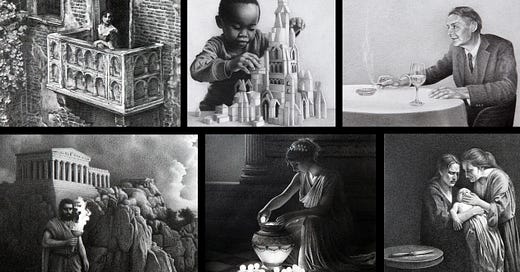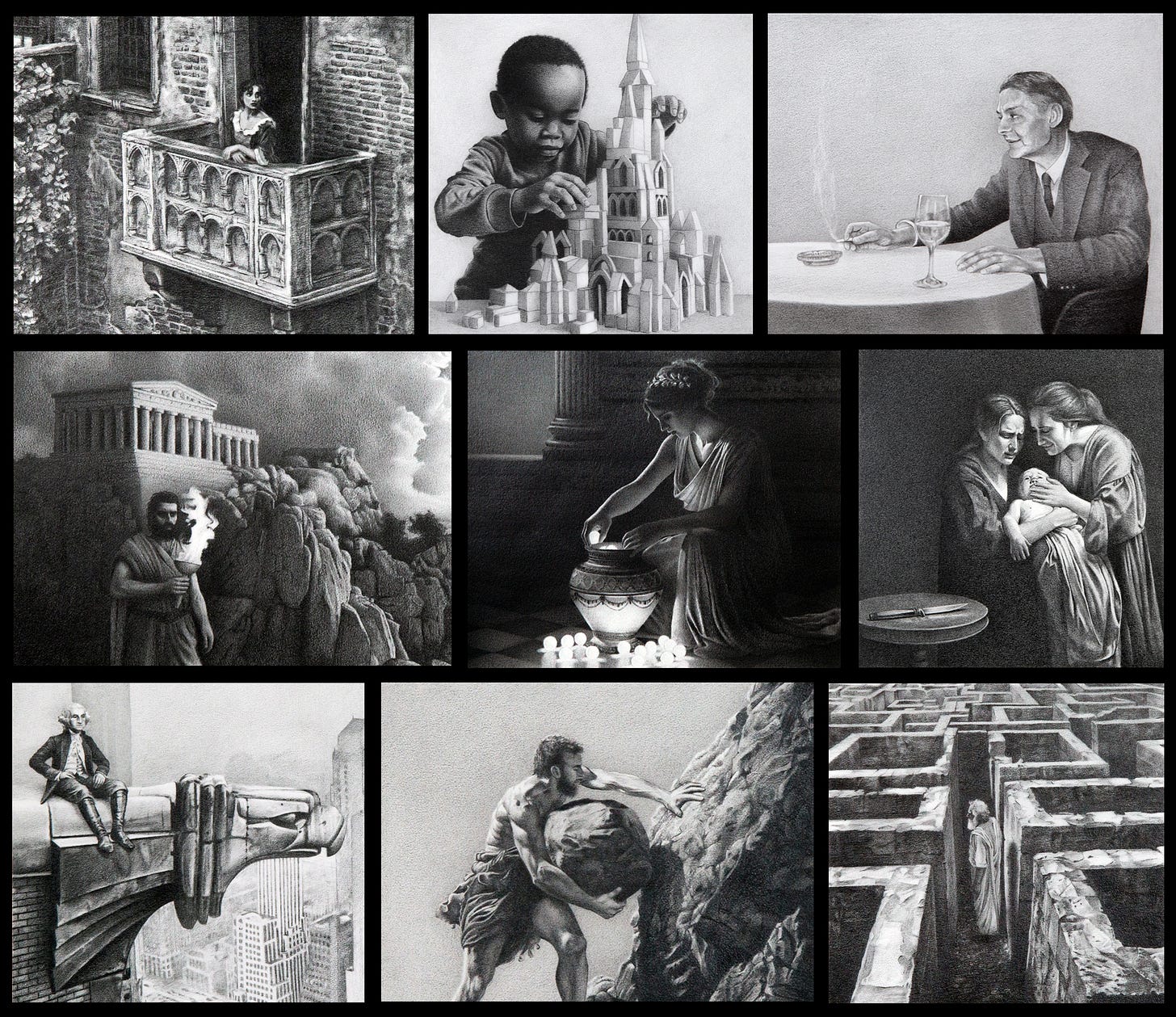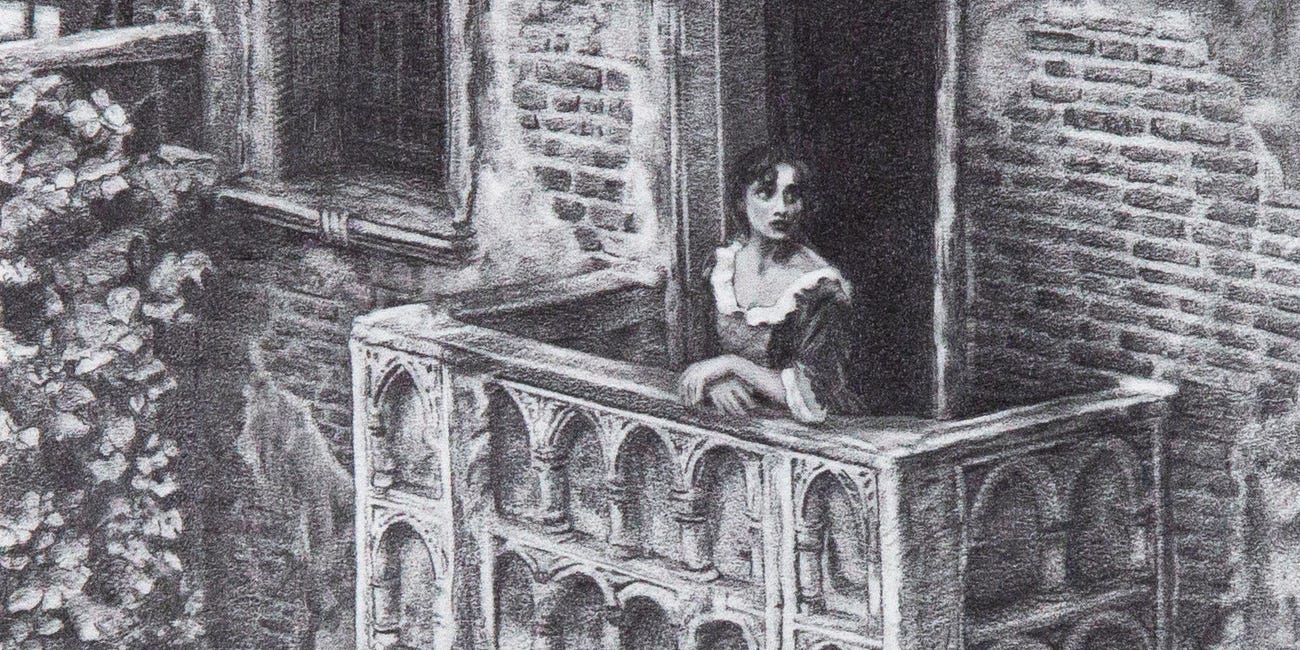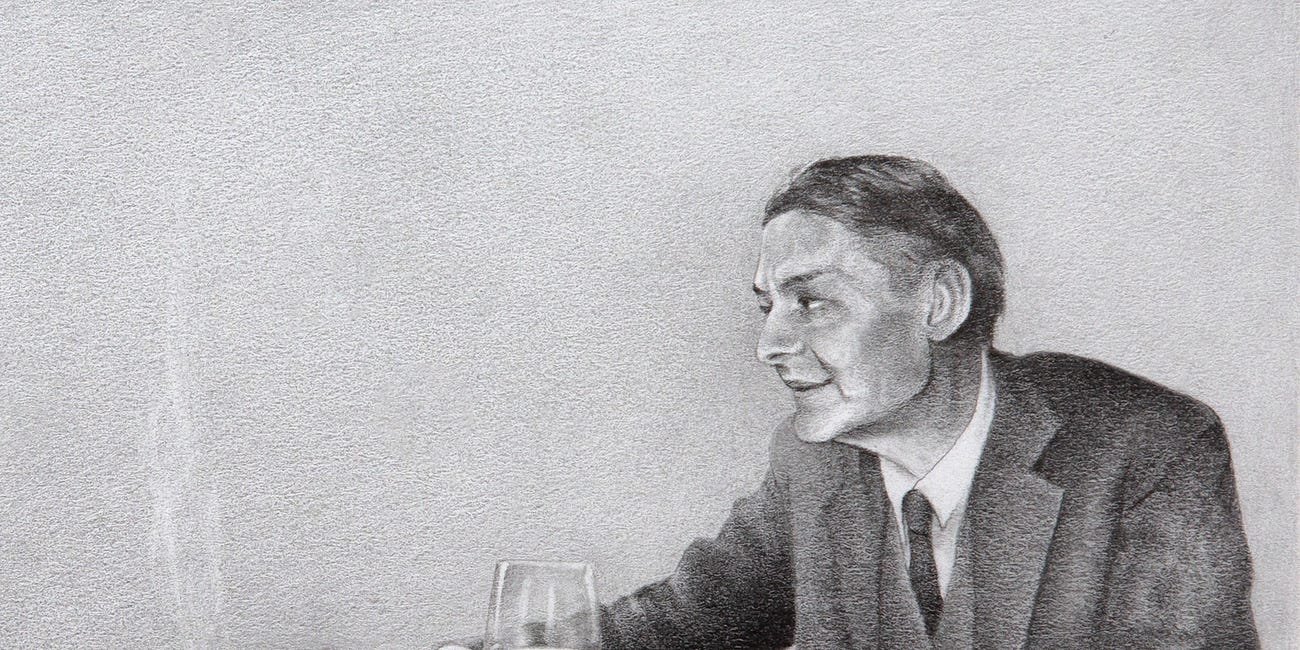Happy early Thanksgiving to my American readers! With that holiday (and my birthday) fast approaching, I’m taking my annual Fall Break. I’ll be back after Turkey Day with a new visual essay. In the meantime, please enjoy some pieces from the archive — especially if you’re a new subscriber. And if you aren’t a subscriber, try this one simple trick:
Here are three recommendations that showcase the range of topics you’ll read about in Fashionably Late Takes:
First up is “American Feud,” which I wrote after J. D. Vance secured his VP nomination. It’s about understanding our incoming vice president through Shakespeare's Romeo and Juliet, and now that he's headed to the White House, my exploration of his Hillbilly heritage is more relevant than ever.
American Feud
Romeo and Juliet is the most famous of love stories, though sometimes the lovers go by other names. Their tale is both ancient myth and recent history, both a dramatization and the real events that befell actual people. Many young men and women have died to pursue love across the battle lines of feuding clans. The persistence of this story across cultures and centuries demonstrates an enduring tragedy: When feuds entrench generations in violent tit-for-tats, love does not conquer hate.
Next up is an installment from my Ideas Worth Drawing For series, in which I make hand-drawn images to honor the excellence of essayists I admire. This piece is front of mind for me lately, because it features a drawing of the poet T. S. Eliot but opens with a quote from another poet, W. H. Auden — and I’m currently working on a drawing of Auden for an upcoming essay that will pair well with this one.
On Douglas Murray's "Things Worth Remembering"
Two years before his death, the poet W. H. Auden explained that the arts are “our chief means of breaking bread with the dead. After all, Homer is dead, his society is gone, but we can read The Iliad and find in it significance and meaning. And I personally think without communication with the dead a fully human life is not possible.” Throughout the past year, Douglas Murray has broken bread with dead poets in his Sunday column called “Things Worth Remembering.” In each installment he shared a poem (or a piece of a poem) that he has memorized, along with thoughts and stories like that insight from Auden.
And finally, a piece about scientific hubris. Before launching Fashionably Late Takes, I spent about a decade making artwork about the philosophy of science, and in particular, the tension between pursuing knowledge and curiosity killing the cat.
To Err Is Human
“Black Saturday” was the most precarious day of the Cold War, and it emerged out of a series of mishaps. Where malice could theoretically be contained by Mutually Assured Destruction, malfunctions went rogue. Airplanes and a submarine nearly fired nuclear missiles. If they had, then Black Saturday would have become the first day of WWIII. This history teaches us how happenstance and errors can compromise safeguards when using scientific discoveries, like nuclear fission, that require utmost care.
If nuclear physics birthed the quintessential example of a scientific-breakthrough-turned-existential-threat in the 20th century, then our 21st century equivalent is born by research on deadly pathogens.
Thank you for reading my work, and if you’re wondering what to get me for my birthday, please click the link below to share this publication with friends, family, and followers:








